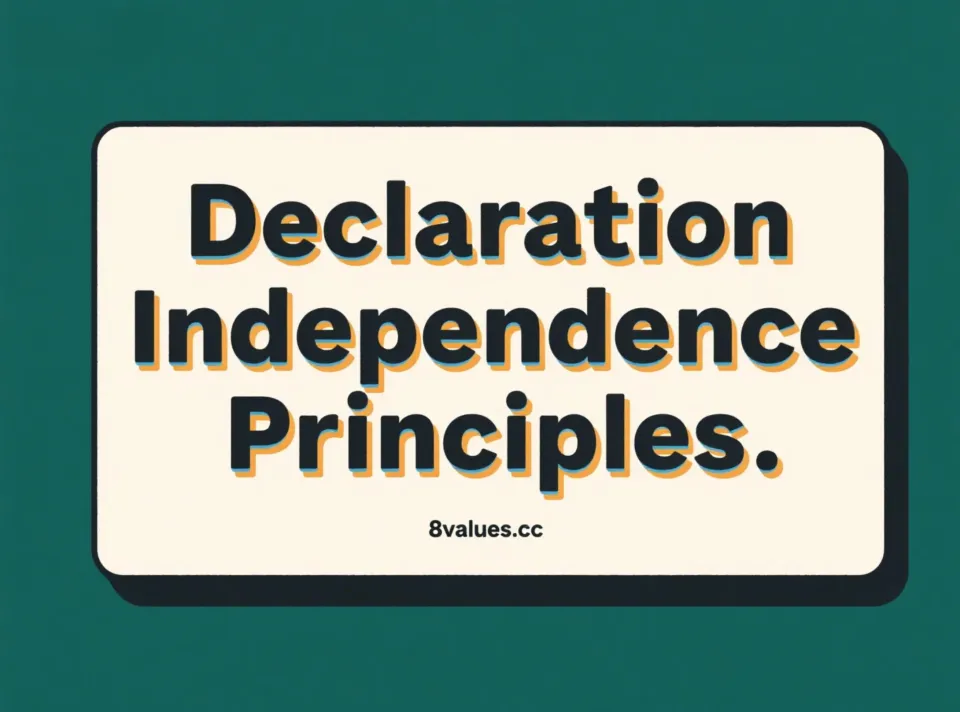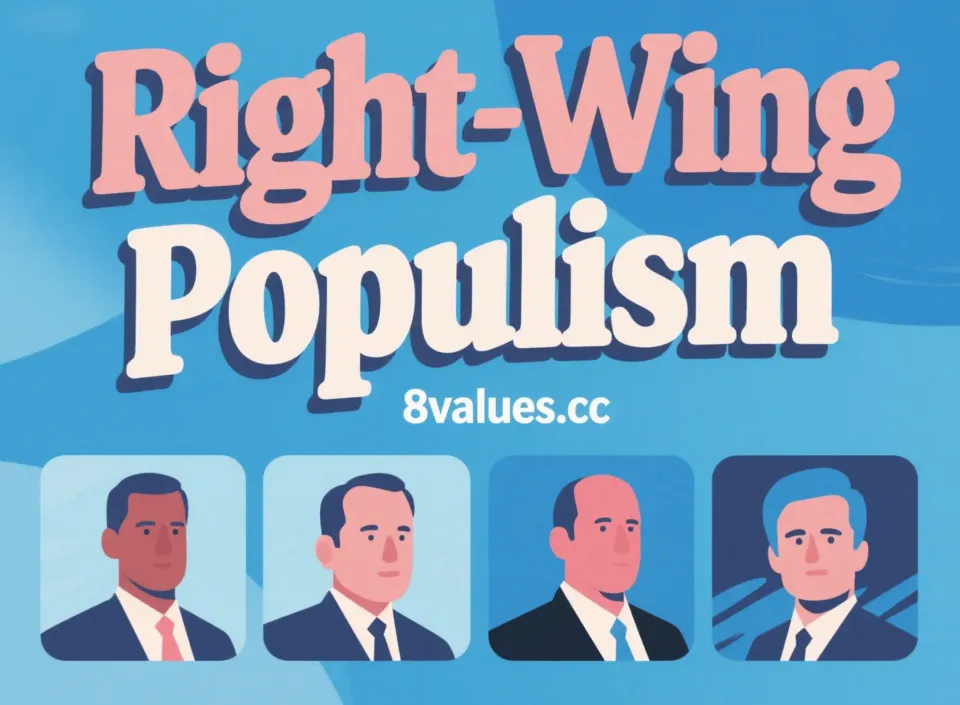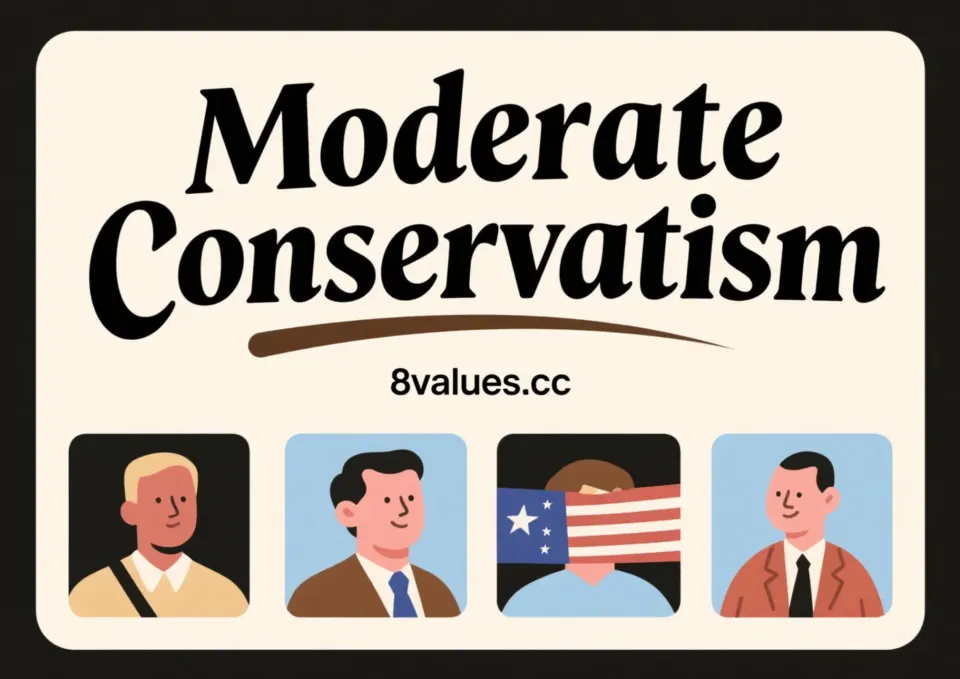Declaration of Independence Core Thought: Enlightenment philosophy, equal rights and sovereignty in the people's political foundations
A deep analysis of the core political thoughts of the US Declaration of Independence, explore the philosophical roots of "everyone is born equal", reveal the profound influence of Enlightenment thinkers such as John Locke on the theory of inalienable rights and sovereignty in the people, help you understand the cornerstone of modern politics, and invite you to explore your personal political values through the 8Values political test.
The Declaration of Independence is not only a programmatic document for the thirteen North American colonies to declare their separation from the rule of the Kingdom of Great Britain, but also a transformative political philosophy document of global significance. The Declaration was officially adopted at the Second Continental Congress in Philadelphia on July 4, 1776 , laying the foundation for the United States' concept, goals and value system. Its core idea—a discourse on inherent rights , the creation of equality and sovereignty among the people —is still a moral benchmark for measuring American ideals and reality.
The historical background and drafting process of the Declaration of Independence
Relations between North American colonies and Britain had been tense for years before the publication of the Declaration of Independence. The British Parliament imposed taxes without representatives in the colonies, such as the Stamp Act of 1765 and the Townshend Acts. The colonists believed that as British subjects, they should enjoy "the same full rights, freedoms and privileges" as native British subjects.
Although many colonists initially fought for their rights as "English" and sought reconciliation with the British Empire, hopes for reconciliation were completely shattered as George III refused to accept the Olive Branch Petition and declared the colony in a state of rebellion. Thomas Paine 's radical pamphlet "Common Sense" published in 1776 in an unprecedented way criticized the monarchy, explicitly advocating that the colonies must be separated from Britain. Paine's argument, combined with easy-to-understand language and passionate rhetoric, quickly spread widely in the colonies, greatly promoting independent public opinion.
On June 7, 1776 , Virginia representative Richard Henry Lee proposed the famous "Lee Resolution" * (_Lee Resolution_) at the Continental Conference, and the core content was declared: "These joint colonies are now, and should be, free and independent states; they lift all obligations of allegiance to the British royal family." The Mainland Conference adopted this resolution on July 2 , completing a formal act of legal independence.
To explain the “reason” of separation from Britain to the world, including potential foreign allies, Congress appointed the Committee of Five : Thomas Jefferson , John Adams , Benjamin Franklin, Roger Sherman and Robert R. Livingston. Adams insisted that he was written by Thomas Jefferson of Virginia, and believed that he was better at writing. Jefferson completed the first draft in a short time, and Franklin and Adams subsequently revised it. One of the most famous revisions was to change the first draft "we hold these truths to be sacred and undeniable" to "we hold these truths to be self-evident."
It should be noted that the Continental Conference made extensive modifications and deletions to Jefferson's manuscripts, especially at the request of the Southern representative, the passage condemned King George III of the forcibly promoting the slave trade .
The philosophical roots and influence of Enlightenment thoughts of "Everyone is born equal"
The preface to the Declaration of Independence is the essence of its political philosophy . The declaration did not create new principles, but aimed at expressing political ideas generally accepted by Americans at that time in a concise way.
The most powerful sentence in the declaration is:
“We believe that the following truths are self-evident: all men are born equal, and the Creator gives them several inalienable rights, including the right to life, the right to freedom and the right to pursue happiness.”
The profound imprint of enlightenment thought
This emphasis on equality and inherent rights stems directly from the idea of the Enlightenment .
John Locke's Liberal Philosophy: British political philosopher John Locke had the greatest influence on colonial thought. Locke proposed in "Essay Concerning Human Understanding" that the human mind was originally a "whiteboard" (_tabula rasa_). This means that individual success does not stem from innate superiority, but is mainly shaped by the environment. This idea challenges the old concepts of the divine right of the monarchy and the aristocratic hierarchy. Locke's liberal philosophy is regarded by many Americans as the foundation of political beliefs. The theories of natural rights (life, freedom, property) and government legitimacy explained by Locke in "Second Treatise on Government" are clearly reflected in the Declaration of Independence. Although Locke emphasizes "Property" rights, Jefferson draws on George Mason's "_Virginia Declaration of Rights" and extends the concept to "the right to pursue happiness." This elevating rights to a new level of "pursuing happiness" broke the religious concept of denying present life in the Middle Ages, and was an important revolution in modern political theory.
Unalienable Rights: The declaration declares that these rights are "unalienable Rights" (_unalienable Rights_). This means that they are given by the Creator and that neither the State, the Parliament nor the King have the right to interfere or deprivation. This idea lays the philosophical foundation for civil democracy that the rights of all individuals should be guaranteed because they originate from the person's own identity.
Consent of the Governed and the Right to Revolution
The Declaration of Independence clearly states the origin, purpose and power basis of government, namely the theory of sovereignty (Popular Sovereignty).
The legitimacy of the government
The declaration states:
“To protect these rights, people establish governments among them, and the legitimate power of government comes from the consent of the ruled.”
This is the core manifestation of the social contract theory. The sole purpose of the government exists is to protect the inherent rights of the people (life, freedom and the pursuit of happiness). The power of the government does not come from the monarch, but from the consent of the governed . This concept completely denies the legitimacy of feudal hierarchy and monarchical autocratic rule.
The revolutionary rights of the people
If the government undermines the purpose of protecting these rights, the declaration clearly confers a fundamental right and obligation to the people:
"Any form of government, as long as it undermines the above purpose, has the right to change or abolish it and establish a new government; the principles on which the new government lays the foundation and organizes its powers, must promote the safety and happiness of the people to the greatest extent possible."
Nevertheless, the declaration also stressed that governments that have been established for many years should not be changed for "slight and short-term reasons." Only when the tyrannical goal of "consistently abusing power and robbing power" is clear will the people have the right and obligation to overthrow the old government and establish new guarantees.
Most of the subsequent contents of the Declaration of Independence (about two-thirds) list 27 specific indictments against King George III of England to prove that the colonial people had experienced "long-term abuse of power and robbery", so declared independence was a forced, legal and just action.
The Declaration of Independence's International Law Position and Final Declaration
The Declaration of Independence is not only a mobilization of the colonial people, but also a "decent respect to the opinions of mankind" . It declared the United States' sovereignty to the outside world and tried to win recognition from the international community.
Historians point out that the Declaration of Independence is crucial to the function of international law. The authoritative international law book at that time, "The Law of Nations" believed that independence was a fundamental feature of a sovereign state . By issuing a declaration, the United States made it clear to the world that it is no longer dependent on Britain, allowing foreign governments like France to provide assistance under the framework of international law rather than being seen as interfering in the British civil war.
The conclusion of the declaration formally completes the claim of independence:
"We, therefore, as representatives of the United States of America, assembled under the Continental Conference... solemnly declared that these joint colonies have since become, and justifiedly, free and independent nations; they have lifted all obligations to be loyal to the British royal family... as free and independent nations, they have full authority to declare war, peace, alliance, trade and take all actions and matters that independent nations should take and deal with."
The signing delegates held a "strong dependence on God's blessing" and swore to each other: "I would like to guarantee each other and take a oath together with our life, wealth and divine honor." This promise was tantamount to signing its own "death order" at that time, reflecting the firm belief of these founding fathers in the cause of independence.
The relationship between the transcendence of the spirit of the declaration and modern political thought
The Declaration of Independence did not immediately become a central topic of politics within the first few decades after its birth, and its political actions (declaration of independence) were more concerned than the text itself. It was not until the 19th century that Jeffersonian Republicans praised it as the cornerstone of American political principles that its importance gradually increased.
The declaration’s concept of “everyone is born equal” goes beyond its historical context and becomes a moral guide for the continuous pursuit and efforts of American society.
- Abolitionist Movement and Lincoln’s Interpretation: The Contradiction between Manifesto and American Slavery was criticized from the very beginning. In the 19th century, abolitionists such as William Lloyd Garrison and Frederick Douglass used the Declaration of Independence as an important moral basis for the struggle for liberation and justice. Abraham Lincoln, viewing it as the highest manifestation of the founding spirit of the United States, insisted that the concept of equality in the declaration was universal and a "guiding principle" established for a free society, and should be approached even if it could never be achieved perfectly. Lincoln's interpretation made the Declaration of Independence a moral benchmark for interpreting the United States Constitution.
- The banner of the Civil Rights Movement: The spirit of equality in the declaration was widely cited by subsequent social movements:
- Women's Rights Movement: In 1848, the Seneca Falls Conference Declaration on the Rights of Women imitated the Declaration of Independence, advocating that "all men and women are created equal."
- Civil Rights Movement: In 1963, Dr. Martin Luther King, Jr., in his famous speech on "I Have a Dream" , directly quoted the creed of the declaration, calling on the state to fulfill its commitment to equality.
- LGBTQ+ Rights Movement: activist Harvey Milk pointed out in 1978 that the inalienable rights established in the declaration apply to all individuals and should not be hindered by sexual orientation.
- The influence of the global independence movement: The Declaration of Independence was one of the first announcements in modern history to announce the establishment of a new country, opening up a new form of political expression. It influenced France's Declaration of the Rights of Man and of the Citizen and later the Declaration of Independence in Haiti, Venezuela, Vietnam and other countries.
As the cornerstone of American political philosophy, the Declaration of Independence, its core concepts of equality , freedom and sovereignty are the starting point for understanding Western democratic systems and political ideology. If you are interested in these profound questions about freedom, rights and government authority and want to further explore your own political stance and ideological tendencies, try the 8values political values tendency test . This test helps you quantify and understand your values in eight dimensions, including social, economic, diplomatic and civil rights, and gain insight into all results ideologies in 8 values .
_The content of this article is excerpted from American historical literature and academic research, aiming to deeply analyze the philosophical thoughts and historical significance of the Declaration of Independence. _






